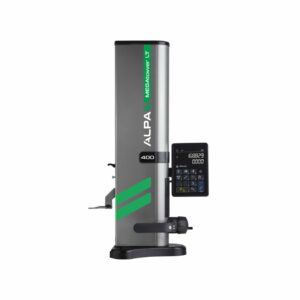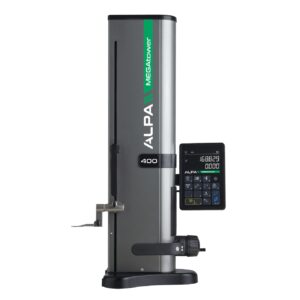Altimeters: essential tools for machine shops
In the world of machine shops, precision is a crucial element that cannot be overlooked. Altimeters, indispensable measuring instruments, play a key role in ensuring that every mechanical component is produced with the utmost accuracy. But what exactly are altimeters and how can they improve operations in a machine shop? In this in-depth look, we will explore the features, applications and benefits of altimeters, while also answering frequently asked questions about these instruments.
Understanding altimeters: definition and operation
Altimeters are measuring instruments used to determine the height or vertical distance of an object relative to a reference point. In machine shops, altimeters are used to accurately measure the height of machined components and parts, ensuring that they meet design specifications. These instruments can be analogue or digital, with digital models offering greater accuracy and ease of use due to their ability to provide direct and immediate readings.
Applications of altimeters in machine shops
Altimeters find application at various stages of the production process in machine shops. They are used for:
- Quality control: Altimeters are essential for quality control, making it possible to verify that component dimensions conform to technical specifications. This is particularly important in industries such as aerospace and automotive, where precision is paramount.
- Assembly: During the assembly of complex machinery, altimeters help ensure that components are assembled correctly, reducing the risk of errors that could affect the operation of the final product.
- Maintenance: Altimeters are also used in machinery maintenance to measure component wear and determine when they need to be replaced.
Advantages of using altimeters
The adoption of altimeters in machine shops offers numerous advantages, including:
- Accuracy and reliability: Altimeters provide extremely precise measurements, minimising errors and improving the quality of the final product.
- Operational efficiency: With the ability to take fast and accurate measurements, altimeters help speed up production processes, increasing overall workshop efficiency.
- Cost reduction: Due to their accuracy, altimeters help reduce material waste and minimise the need for rework, leading to a significant reduction in operating costs.
Types of altimeters and their characteristics
There are different types of altimeters, each with specific characteristics that make them suitable for particular applications:
- Dial altimeters: These analogue instruments use a dial to display measurements. They are robust and reliable, ideal for harsh working environments.
- Digital altimeters: They offer accurate digital readings and are equipped with advanced features such as data storage and the ability to transfer measurements to a computer for further analysis.
- Laser altimeters: Use a laser beam to measure distances, offering exceptional accuracy and the ability to measure hard-to-reach objects.
Frequently asked questions about altimeters
1. What is the difference between an analogue and a digital altimeter?
Analogue altimeters use a dial to display measurements, while digital altimeters provide readings on an electronic display. Digital models tend to be more accurate and easier to use.
2. How do I calibrate an altimeter?
Calibrating an altimeter is essential to ensure accurate measurements. This process varies depending on the model, but generally involves using a calibration block of known height to adjust the instrument.
3. Can altimeters be used outdoors?
Although altimeters are primarily designed for use in controlled environments such as workshops, some rugged models can be used outdoors, provided they are protected from adverse weather conditions.
4. What are the measurement limits of altimeters?
Measurement limits vary depending on the model and type of altimeter. It is important to choose an instrument that meets the specific requirements of the application.
5. Do altimeters require maintenance?
Like any precision instrument, altimeters require regular maintenance to ensure optimal performance. This includes cleaning, periodic calibration and checking the integrity of moving parts.
Conclusions
Altimeters are indispensable tools in machine shops, offering precision and reliability in measurements. Their ability to improve quality control, operational efficiency and cost reduction makes them a valuable investment for any company involved in mechanical production. With a thorough understanding of their features and applications, workshops can make the most of these tools to optimise their production processes and ensure high quality products.
Showing all 4 results






